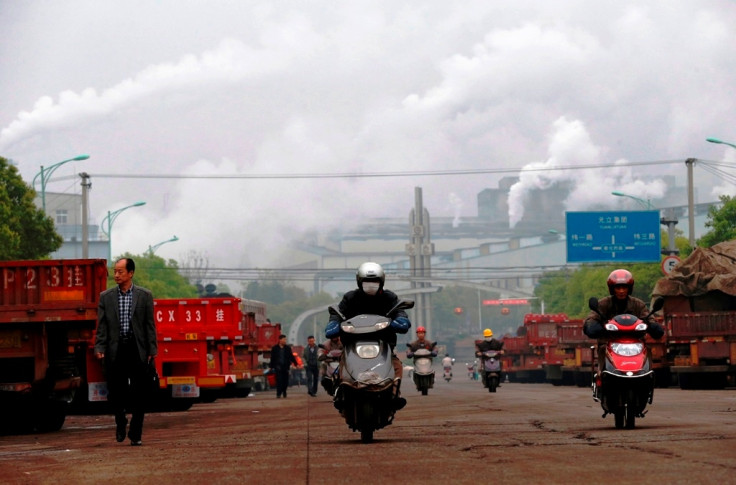China's Factory Activity Steadies but Growth Concerns Persist

Activity in China's factories was a tad better in April, over March, but export orders dropped, government data showed on 1 May.
The official Purchasing Managers' Index (PMI) rose to 50.4 in April from March's 50.3, the National Bureau of Statistics said, the first indicator to signal a weak start in the second-quarter.
The latest reading was slightly below economists' expectations but remained above the 50 threshold that divides growth from contraction.
The new orders sub-index in the PMI inched up to 51.2 in April from 50.6 in March, but the sub-index for export orders fell to 49.1 from 50.1 in March.
Meanwhile, the employment sub-index of the PMI held steady at 48.3 in April, pointing to a contraction. Beijing has taken steps to create more jobs, particularly for college graduates. Premier Li Keqiang has said that the economy must grow 7.2% annually to create 10 million jobs per year.
Sluggish Realty Sector
Sun Wencun, a Beijing-based economist at CITIC Securities, told Reuters exports could benefit from a recovery in developed economies but that a sluggish property sector was a huge concern.
China's cooling property sector has hit allied industries, in turn impacting industrial growth.
The real estate sector supports nearly 40 other industries, ranging from cement to furniture, and plays a vital role in reinforcing consumer confidence.
Bill Adams, senior international economist for PNC Financial, said in a note to clients: "Accumulating evidence of stabilizing Chinese growth provides an opening for the People's Bank of China to allow market forces to predominate in the foreign exchange market, likely resulting in the yuan strengthening to close to 6.10 per US dollar in the second half of 2014 from today's 6.24.
"The longer the yuan sits at this level, weaker than where it closed 2013, the more flak China's government is likely receiving from its trading partners about that hoariest of conflicts, currency manipulation," Adams added.
Stimulus
The latest PMI data came a day after Premier Li promised to boost support for the trade sector, adding to the recent stimulus measures on concerns that the world's second-largest economy may be losing momentum more quickly than expected.
Last week, a flash reading of the HSBC/Markit PMI showed Chinese manufacturing activity shrank for a fourth consecutive month in April, but at a slower pace than in March. The final reading is due on 5 May.
Last month, data showed China's exports slumped for the second consecutive month in March, while import growth also slowed.
In March China exported 6.6% less than it did in the same month a year ago, following a dire February when exports slumped 18.1% year on year.
China's property market has lost steam since late 2013 after Beijing cracked down on speculative buying and after banks made it difficult for home buyers and small developers to secure loans.
© Copyright IBTimes 2025. All rights reserved.






















